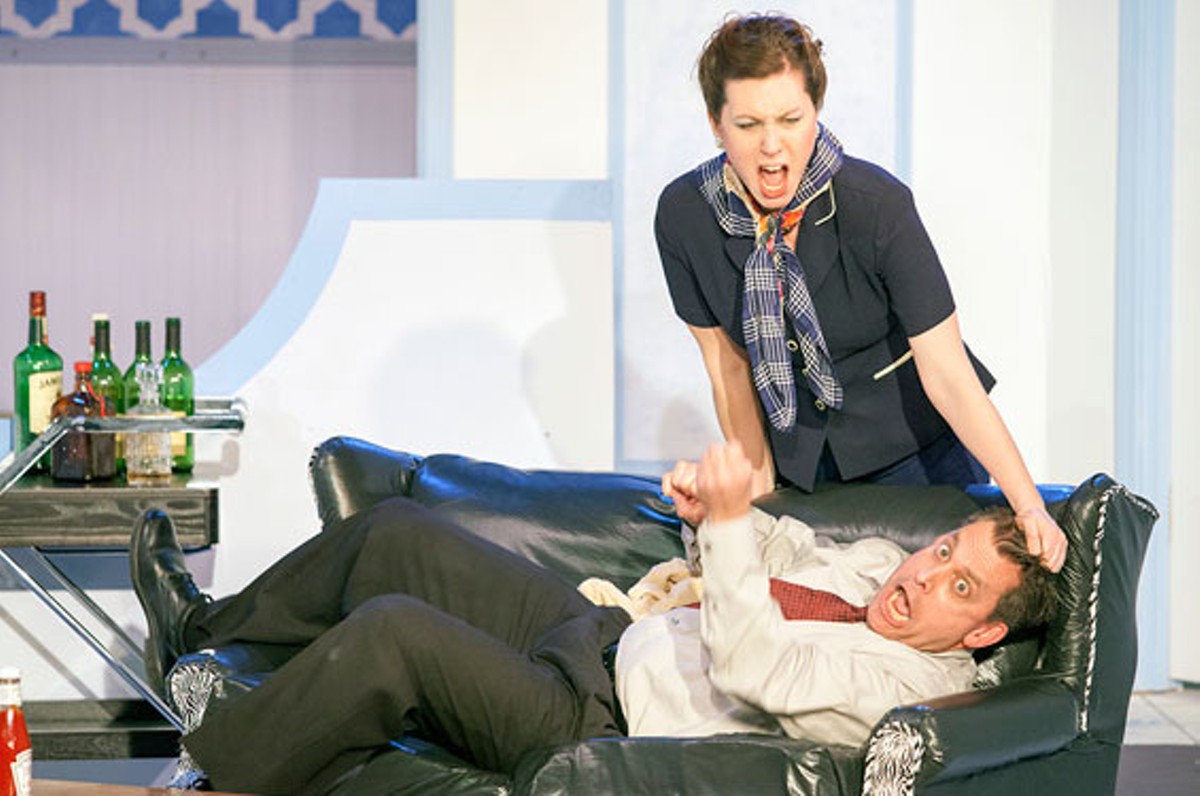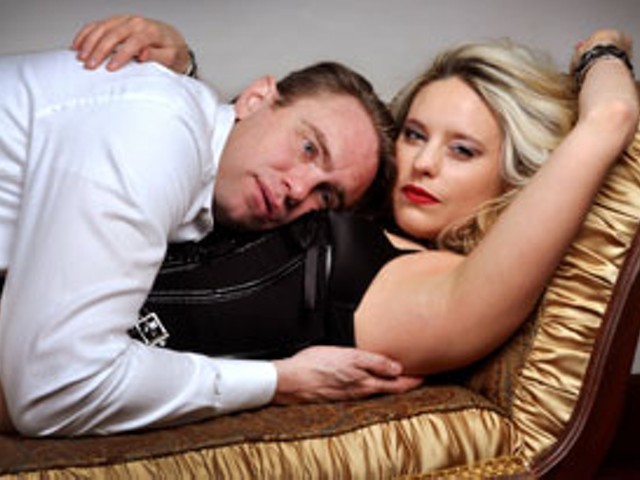Robert is not your typical boy next door. He lives the high life in Paris, where his spacious apartment — lots of bedrooms, lots of doors — comes complete with a cantankerous housemaid. Robert also enjoys the pleasures of three — count 'em, three — fiancées. They are all air hostesses, who fly in and out Robert's life in the most orderly and calculated manner. These romances by timetable provide the second clue that the 1960s farce Boeing-Boeing, the current offering from Dramatic License Productions, is an antiquated play, for the story presupposes a long-ago world when airlines ran on schedule. (The first clue to the play's dusty age? The phrase "air hostess.")
All too soon (though not soon enough to abet a listless Act One) flights begin to get canceled, and Robert and his best friend Bernard have a dizzying time as they strive to keep each of the three flight attendants oblivious to the proximity of the other two. Mayhem, of course, is the mainstay of farce, and in some quarters the eventually frenetic Boeing-Boeing is revered as a classic French farce. It must be a classic. Didn't it run for nineteen years in Paris and another seven in London? And isn't longevity one of the definitions of a classic?
Of course it is, which is why the sex farce Run for Your Wife, which ran for nine years in London, ranks so high on the list of great comedies, alongside that masterwork No Sex Please, We're British, which eked out sixteen years in London. Alas, No Sex only lasted sixteen performances on Broadway, and the transplanted Boeing-Boeing only ran for twenty-three. But hey, what do New Yorkers know about sex?
For the past several decades, Boeing-Boeing has been relegated to deserved obscurity, awaiting the re-emergence of dinner theater. Then in 2007 in London it was restored to life as a triumphant vehicle for inspired clowns Mark Rylance (as the best friend) and Frances de la Tour (as the maid). The following year Rylance repeated his performance on Broadway, where awed comparisons to Charlie Chaplin and Buster Keaton were oft uttered. Now, because Boeing-Boeing was a surprise success on the Great White Way, it is being staged everywhere — but with no appreciation for why it was a hit. Without the bright beam of a virtuoso star performance to blind the viewer to the play's glaring imperfections, the script is exposed as a painfully dated and mostly humorless affair.
Occasionally in Act Two, the farce stirs to life. The engine of the improbable actions turns over, resulting in sporadic audience laughter. Then, as with a car overdue for a tuneup, the engine sputters and dies. Without intending aspersions on the earnest and hard-working cast in the current Dramatic License staging, it is fair to say that there is no inspiration on this stage, nothing to deflect the eye away from the insufficiencies of the script (which, for the record, was written by Marc Camoletti and adapted into English by Beverley Cross — though apparently it has been adapted anew, because the version currently on view does not align with the script I read).
There's certainly nothing wrong with reviving an old comedy, but one has the right to ask: Why this one? Especially when there are so many comedies, great and obscure, to choose from. Boeing-Boeing was but one of twenty comedies to open on Broadway during the 1964-'65 season. Any one of them (The Odd Couple, Luv, The Owl and the Pussycat, Alfie!...) might warrant another look. But that's all in the abstract. Right now we're dealing with Boeing-Boeing. If you're hankering to see a classic French farce, this is your lucky week.






